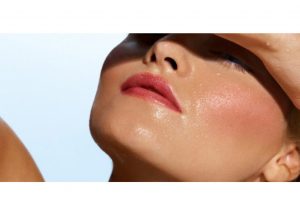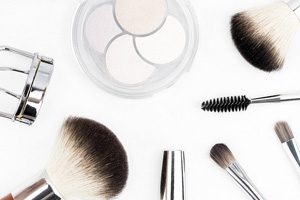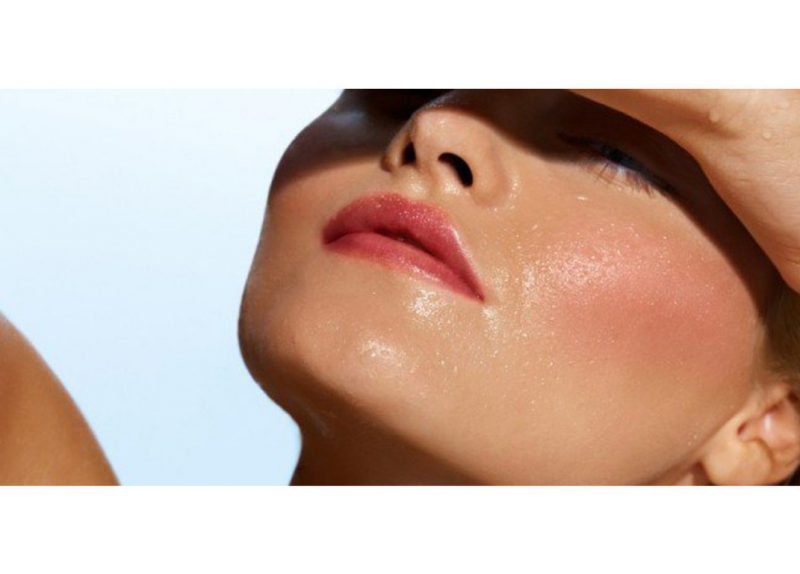 Oily skin is an issue for many people around the world, especially women.
Oily skin is an issue for many people around the world, especially women.
In some cases, the problem can be so serious that people suffering from it may feel uncomfortable in their daily life and less confident in social interactions.
For a long time it has been believed that oily skin was due to genetics alone and there was nothing we could do about it.
However, this is not entirely true. In reality, non-genetic factors are also important as they can contribute to making things considerably worse.
Or better, if we see the glass half full.
The main factors that can aggravate the problem are stress, as well as wrong diet, lifestyle or beauty routine habits.
Oily skin can therefore be an indicator of issues with our health or lifestyle.
By trying to understand what is causing oily skin we may discover something important about our health.
Rather than concealing the problem, it’s therefore a good idea to understand its causes.
Why is my skin oily?
Of course genetics are important.
As we all know, we inherit from our parents certain characteristics that sometimes are good and sometimes are less good.
People with oily skin would probably agree that the overproduction of dihydrotestosterone (DHT) causing oily skin is among the less good features.
However, the good news is that genetics are only one of the factors contributing to the problem.
The other ones mainly depend on our lifestyle, which means that we can act upon them to improve the situation.
This will require a little bit of effort from our side but still, it’s great to have the option to do so!
Stress is a very important factor that can make your skin oilier.
Even people that in general do not suffer from oily skin may have experienced this problem during particularly stressful periods in their lives.
This is due to the fact that, when we are under pressure, our adrenal glands increase their production of hormones such as adrenaline and cortisol to help the body cope with the stressful event.
A side effect of this is that our skin increases its oil production in response to these stimuli.
This can eventually lead to acne as well.
This notion was confirmed by a 2007 study carried out in Singapore among school students.
The study found that the kids under pressure during their exams had more acne than the ones on holiday break.
Another important factor is diet, and in particular high dairy intake.
The reason for this is that milk naturally contains hormones due to the fact that it is produced by cows after they give birth, to feed their calves.
On top of this, hormones are commonly used in intensive farming as a way to accelerate livestock growth and, therefore, production.
The high content of hormones in dairy products is a major factor contributing to oily skin and acne.
It is estimated that one glass of milk contains around sixty types of hormones.
The quantity of hormones is even higher in cheese due to the high concentration of milk in it.
Excess consumption of alcohol can increase the production of oil as well.
This is due to the fact that after consuming alcohol our body temperature rises, leading to increased sweating and oil production.
Furthermore, high alcohol consumption can also shrink skin pores and depress our immune system.
Because of this, bacteria are more likely to accumulate in skin pores and provoke acne among regular drinkers.
Despite common belief, sun exposure can also contribute to oily skin. During exposure our skin normally feels drier, which led many people to think that sunbathing is a good remedy for oily skin.
However, in reality, in reaction to sun exposure our sebaceous glands produce more oil to moisturize dry skin and relieve the epidermis after UV exposure.
Also, bad beauty routine habits can accentuate the problem.
For example, people with oily skin tend to wash their face more often to remove excess oil. Although understandable, in reality this behavior may worsen the problem.
In fact, washing your face removes natural oils and encourages your skin to produce more to compensate.
The choice of the wrong face wash, moisturizer or makeup can contribute to aggravate the situation as well.
For instance, harsh face cleansers and scrubs should be avoided as they can trigger more oil production in response to the aggression to the skin.
Also, heavy makeup may not be good for your skin type. As a matter of fact, heavy makeup can clog the pores and as a result of this the body will produce even more oil.
What are the remedies?
Now that we know that oily skin is provoked not only by genetic factors but also by our lifestyle, the next, simple, step is to improve our habits to alleviate the problem.
 Avoid Stress
Avoid Stress
If your skin is telling you that you are too stressed, the solution is to avoid stress whenever possible or, at least, learn how to cope with it.
Relaxation techniques such as meditation or deep breathing can help overcome stressful periods without damaging your health. Your skin will considerably benefit from this.
 Keep Alcohol and Dairy Product Consumption at a Minimum
Keep Alcohol and Dairy Product Consumption at a Minimum
We saw that high dairy intake and regular alcohol consumption are two main factors contributing to oily skin and potentially acne.
The solution in this case is to keep the consumption of these products to a minimum. Many alternatives to dairy are now available on the market and may help reducing the consumption of milk without sacrificing taste.
 Reduce Sun Exposure
Reduce Sun Exposure
Reducing sun exposure and avoiding the hottest hours of the day is a good habit to prevent not only oily skin but also skin cancer. Extreme temperatures should be avoided as they can irritate the skin.
 Proper Sunscreen Choice
Proper Sunscreen Choice
The choice of the right sunscreen is also key as many creams are too thick and heavy and can block pores, thus resulting in increased oil production.
Light sunscreen gels, as well as sunscreen facial powders, can be good alternatives.
 Not to Wash the Face Too Often
Not to Wash the Face Too Often
Not washing your face too often should also give good results.
You should wash your face twice a day, once in the morning and once at night, using warm water.
More gentle cleansers such as foaming face wash or gel are preferable to harsh products such as scrubs.
Oil-free, paraben-free and sulfate-free formulas are desirable as well. Similarly, light and oil-free moisturizers are good alternatives to heavy creams to prevent oily skin.
 Light and Proper Make-up Choice
Light and Proper Make-up Choice
Makeup should also be chosen carefully as it is important to opt for products suitable for oily skin.
In particular, makeup should be light, oil-free and non-comedogenic.
Using humectants could be a good idea too as they encourage water to come to the surface and oil is therefore less likely to be trapped in the pores.
On top of genetics, there may be other reasons why your skin is oily.
Instead of concealing this problem, it is therefore a good idea to understand what is causing it.
Your skin can tell you a lot about your health and by understanding what is causing the excess oil production, you could actually realize that some of your habits are not doing you any good.
Changing these habits will greatly benefit not only your skin, but also your health in general.
Oily skin can be a sign that there are a lot of toxins in your body and your skin is trying to detox and flush these toxins out. Go to the next page and discover how to strengthen your immune system and protect yourself from these toxins. –
About the Author:
Emma Deangela is the best selling author of The Alkaline Diet Program and 80/20 Fat Loss. She has helped over tens of thousands of men and women to lose weight and transform their health with sound nutrition advice. Learn how you can lose weight fast – How to lose weight by adding these alkaline foods.
What skin type do you have?
Please share with your friends this article on “Oily Skin?” – Use any of the social media and email buttons on the left of our website.


Leave a Reply